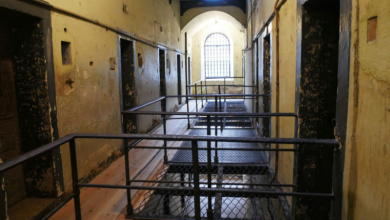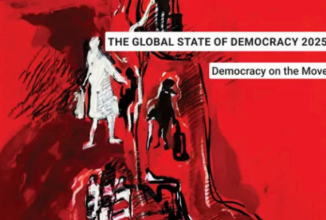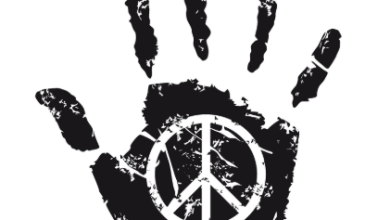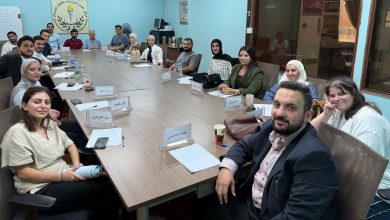The situation in the Middle East – Security Council 9896th meeting – 10 April
Written by Marine
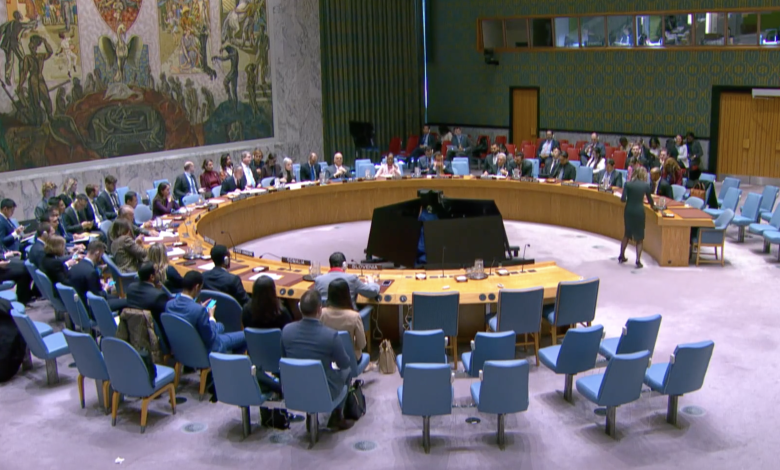
The meeting on the Situation in the Middle-East was held on April 10 and chaired by Under-Secretary-General for Peace Operations Jean-Pierre Lacroix. It was requested by Algerian and Somalian representatives, aiming to tackle the issue of Israeli attacks on Syria occurring since the 8th of December, coinciding with the overthrow of Bashar al-Assad.
Israel has carried out hundreds of air strikes in Syria and deployed troops on the occupied Golan Heights. Israeli officials have also expressed intentions to maintain a presence in Syria. This situation is even more concerning as Syria is undergoing a fragile political transition.
Several experts and country representatives expressed their consternation over Israel’s behavior in destabilizing Syria at a complicated time. The Assistant secretary-general for Middle-East, Asia and the Pacific reminded the Council of Syria’s need to stabilize after 14 years of conflict, and emphasized that it must be supported and protected to ensure regional peace. The Permanent representative of Algeria, speaking on behalf of the A3+ members – Algeria, Guyana, Sierra Leone and Somalia – called for the immediate cessation of attacks on Syrian infrastructure and demanded a complete withdrawal of Israeli forces from Syrian territory, including the Golan Heights, which remains occupied Syrian territory as reaffirmed by Security Council Resolution 497. In 1974, the Agreement on Disengagement between Israel and Syria was signed. However, following the fall of the Assad regime, Israel stated that it considered “the agreement void until order is restored in Syria”. In reaction, Jean-Pierre Lacroix, speaking on behalf of France, called on Israel to respect Syria’s territorial sovereignty and integrity.
Moreover, countries representatives reminded that the ones who suffer the most from this situation are civilians, amid a staggering humanitarian crisis.
The Permanent Representative of Pakistan expressed concern over Israeli attacks, which he said violate the UN Charter and international law, blatantly disregarding Syria’s unity and integrity. The Russian Federation condemned any attempts to exploit Syria’s period of political transformation and economic uncertainty to impose foreign directives on the Syrian people.
Representatives encouraged the international community to echo the needs of the Syrian population by mobilizing necessary resources, lifting unilateral sanctions and providing support. The Representative of Panama highlighted a real opportunity for Syria to pursue an inclusive political process that guarantees participation for all citizens, regardless of ethic origin, belief system or gender. However, this process cannot move forward without accountability. The Representative of Denmark alluded to this, referencing the killings of Allawite civilians in coastal regions in early March.
In response, the Representatives of Israel and the United States justified the attacks as counter-terrorism measures and actions taken to preserve peace and stability. The United States echoed Israel’s concerns about Syria potentially becoming a base for terrorism, stating that “Israel has the right of self-defense.” During these statements, both representatives largely avoided addressing the humanitarian impact of the attacks or Israel’s violations of international treaties. The Israeli Representative stated that they will do “whatever in their power to prevent another October 7th,” adding that “this is not escalation, but protection.”
The Representative of the Syrian Arab Republic condemned Israel’s efforts to impose a new reality on Syria territory, which contradicts the aspirations of the Syrian people – to live in peace and safety in their homeland. He listed Israel’s actions: hundreds of airstrikes, diversion of river flows, control over water resources in southern Syria, establishment of military outposts, and even promoting tourism for settlers in invaded areas.
Finally, Libya spoke on behalf of the Arab group. They condemned the military escalations and demanded the lifting of economic sanctions against Syria, arguing that sanctions hinder Syria’s economic recovery. They also stated that the crises in Gaza, the West Bank, Lebanon and Syria are being used by Israel as a distraction from its internal problems.
The Security Council meeting underscored a deep concern among the international community regarding the escalating Israeli military actions in Syria amid a fragile political transition. While some states defended these actions as security measures, the majority emphasized the importance of respecting Syria’s sovereignty, supporting its stabilization efforts, and addressing the humanitarian crisis. Moving forward, genuine international cooperation, respect for international law, and inclusive political dialogue remain essential to fostering peace and stability in the region.
